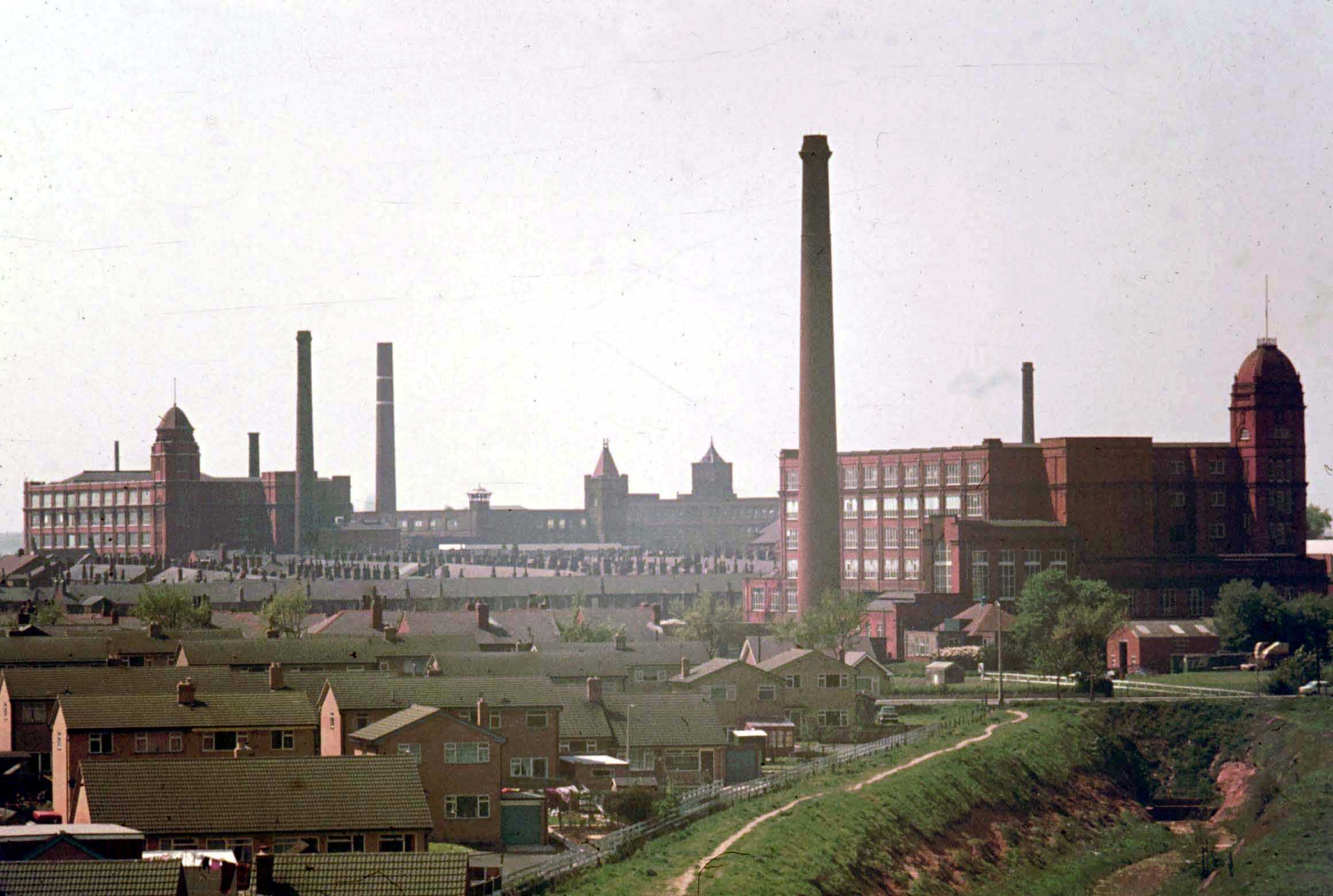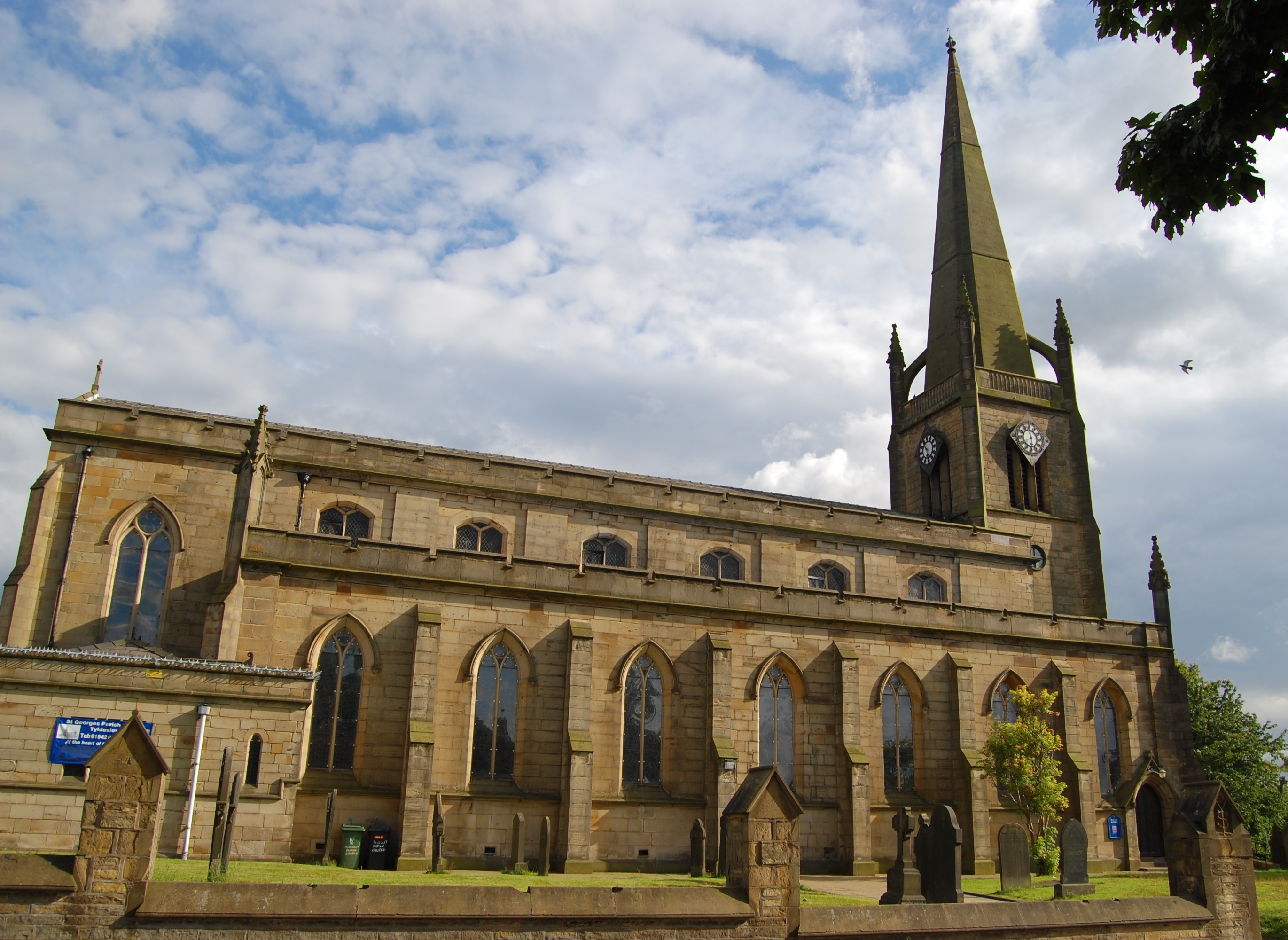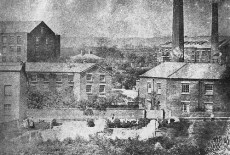James Burton (1784–1868) was the mid-19th century owner of several cotton mills in Tyldesley Former industrial town in the Metropolitan Borough of Wigan, in Greater Manchester. and Hindsford. Born in Clitheroe, Lancashire, Burton was the son of Oliver Burton and his wife Ann. His parents had a drapery business in Clitheroe’s marketplace.[1]
Former industrial town in the Metropolitan Borough of Wigan, in Greater Manchester. and Hindsford. Born in Clitheroe, Lancashire, Burton was the son of Oliver Burton and his wife Ann. His parents had a drapery business in Clitheroe’s marketplace.[1]
Burton worked Peel’s Calico Works at Church Bank near Accrington where he met John Thompson an industrial chemist. Burton was interested in “mechanisms” and with Thompson, the chemist and John Chippendale, a manufacturer set up the Primrose Printworks in 1810-1811. Burton left the company in 1827 with a payment of £10,000.[1]
The following year he moved to Tildsley Banks where he entered into partnership with John and Richard Jones at Tyldesley New Mill. The Jones brothers were more interested in silk weaving, and moved to Bedford New Mills in Bedford Suburb of Leigh in Greater Manchester, one of the three ancient townships that merged in 1875 to form the town of Leigh., Leigh. By 1838 Burton owned many properties in the west end of the town, where he lived in Charles Street, and in Hindsford across the Hindsford Brook. In 1845 his firm was named Burton, Chippendale and Company, but that partnership was subsequently dissolved.[2]
Suburb of Leigh in Greater Manchester, one of the three ancient townships that merged in 1875 to form the town of Leigh., Leigh. By 1838 Burton owned many properties in the west end of the town, where he lived in Charles Street, and in Hindsford across the Hindsford Brook. In 1845 his firm was named Burton, Chippendale and Company, but that partnership was subsequently dissolved.[2]
Burton’s company, James Burton & Sons, was the biggest mill-owning business in the area in the middle of the 19th century. Burton built a cluster of cotton mills in Hindsford starting with Atherton Mill in 1839, followed by Lodge Mill in 1853, Field Mill in 1856, and Westfield Mill in 1860, all of which were supplied with water by the Hindsford Brook.[2]
Politically, Burton was a Liberal. He represented Tyldesley on the Board of Guardians of the Leigh Poor Law UnionEstablished in 1837, covering townships in the ancient parish of Leigh, plus Culcheth, Lowton and part of Winwick.. He died in 1868 and is buried in St George’s Waterloo church dedicated to St George, completed in 1825 to serve the growing township of Tyldesley cum Shakerley. churchyard.[2]
Waterloo church dedicated to St George, completed in 1825 to serve the growing township of Tyldesley cum Shakerley. churchyard.[2]
After his death, his sons, John, Oliver and Fred continued the business. A fire at the mills caused £15,000 damage in November 1883.[2] In 1891 Burton’s mills had 157,196 spindles and 570 looms.[3] The mills were stripped of machinery and were demolished in 1926.[2]




